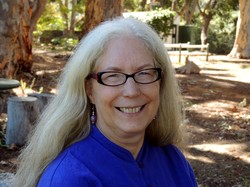“I didn’t know that in America women are given equal rights.”
The Rev. Debbie Blane, a Presbyterian Church (U.S.A.) mission co-worker and lecturer in theology at Nile Theological College South Sudan, wasn’t surprised on hearing this statement from one of her students.
She told him, “Yes, but so does the Bible.”
“Biblical equality—that women and men are created equal in the eyes of God and by God’s hand—is one of the things I talk about a lot with my students,” she says.
Blane recently joined a Presbyterian delegation at the 59th session of the United Nations Commission on the Status of Women (CSW) in March 2015. More than 4,400 human rights advocates attended the weeklong session, held at the United Nations Headquarters in New York City. The experience gave her a new perspective on human rights and the rights of women through the lens of the Convention on the Elimination of all Forms of Discrimination Against Women (CEDAW), an international treaty adopted in 1979 by the United Nations General Assembly. Many consider the treaty to be a landmark international agreement that affirms principles of fundamental human rights and equality for women around the world.
“Even if South Sudan had signed the CEDAW treaty, it is unlikely at this moment that the agreement would be transforming the lives of Sudanese women, and through them, children and families,” says Blane. “The ongoing civil war that began in December 2013 has left half the population food insecure and insecure in many other ways.”
She does have hope for the future though.

Blane, who lectures on a number of topics at Nile Theological College, believes peace efforts need to be top priorities for every country that wants a better life for its citizens. “When there is peace, people can learn there are ways to live without hurting one another. They can realize it is possible to have at least one meal a day and feel more secure in knowing where the next meal will come from. When there is peace, people can begin to understand the importance of ratifying the CEDAW treaty and speaking up to stop violence against women. When there is peace, people can think more rationally.”
Reflecting on her week as a delegate, she sees three top priorities in the quest toward equality for women:
- Girls must be taught to think critically and understand their worth as daughters of God. As such, educational opportunities from primary and secondary school to university level will prepare these young women for the boardroom and the political arena, where they can make a difference in the world.
- Girls must be protected from all forms of abuse and violence, human trafficking, child marriage, and other ways in which their fundamental human rights are violated.
- Women must have access to free or affordable family planning services. A woman’s life choices should not be solely defined by her role as mother and bearer of children.
“The priority for education will help more women become involved in the political arena where economic decisions are made and where ‘real power’ can lead to lasting change,” says Blane. The idea of women becoming more politically active would mean girls not being married in primary school and having their education ended, not being forced to help overworked mothers with household chores at the expense of their school homework, and not being seen merely as a dowry.
According to Blane, there are many reasons why girls end their education, including lack of access to a private toilet after menstruation has begun; child marriage; and fear of molestation, which is considered by some cultures to be the fault of the girl, bringing shame to the family.
The second priority, protection against abuse and violence, should be a basic right for everyone, says Blane. “It means taking a very honest and challenging look at the culture of a people group and asking ‘Is this a culture in which women are recognized as valuable and contributing members of society?’” She adds, “If one is a Christian, this question will be answered through the lens of Jesus Christ, who treated all people as equal and equally valuable.”
The third priority, according to Blane, is that women need free or affordable access to family planning services, including a full range of birth control options. “These services would teach women and couples about spacing of children, the importance of recovery time after childbirth, and how to limit family size to provide adequately for the needs of all.”
2015 marks the 20th anniversary of the Fourth World Conference on Women and the adoption of the Beijing Declaration and Platform for Action and its 12 critical areas of concern, established in 1995. These annual sessions at the UN Headquarters provide time to report on the progress and remaining challenges in implementing this agreement. The ultimate goal is to address these areas of concern and achieve gender equality worldwide by the year 2030.
-----
The Rev. Debbie Blane is a lecturer in theology at Nile Theological College in the Republic of South Sudan. The college was relocated from Malakal to Juba due to the devastating civil war taking place in the new nation of South Sudan. Students are expected to return to the college in July 2015.

